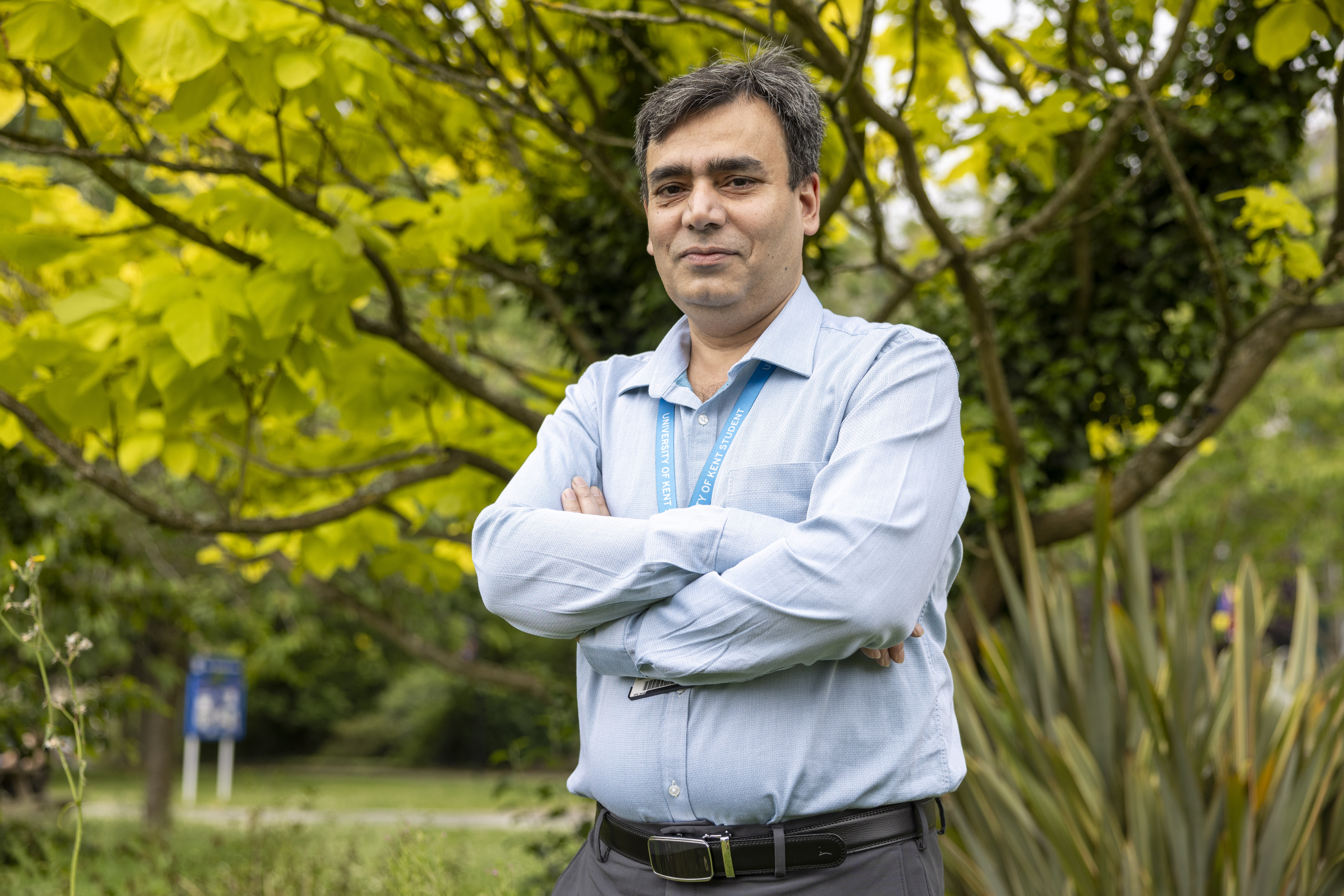At Kent Business School, employability is central to our postgraduate courses. Students work on real-life projects in line with our values of innovation, sustainability, and regional support, gaining experience that impresses future employers. This is exemplified in our MSc Logistics and Supply Chain Management program.
Nafis and Asif, both Logistics and Supply Chain Management Master’s students, took on the challenge, working on projects with East Kent Hospitals University NHS Foundation Trust, to help the NHS reach its goal of reducing carbon emissions by 80% by 2040.
Working on these live projects, Nafis and Asif were able to put into practice our key commitment to sustainable growth, providing inventive solutions to the NHS for the future.
Asif Eqbal’s project to reduce carbon emissions caused by outpatient appointments.
Analysing outpatient appointments through a sustainability lens, we discovered that 6% of carbon emissions came from patient travel, so our strategy was to find ways to reduce that.
One of our recommendations was a ‘virtual clinic’. Patients would be provided with a technical device, like a smartphone, that would allow a dedicated team to monitor their health condition in consultation with their doctor. The device would allow clinicians to see more patients in a day and would also improve the quality of the care the NHS can provide by making daily monitoring possible.
Although the ‘virtual clinic’ proposal would require an initial investment, ultimately every £1 spent would lead to a saving of £3 in the future.
Secondly, we recommended using supply chain modelling and data analytics alongside a sustainability reporting system to identify which areas of the organisation produce the highest carbon emissions and to monitor their progress, as they work towards their sustainability goal.
Our recommendations were very well received, and we were encouraged to explore and research further.
It was a fascinating experience and working on a real-life project was very rewarding. I learnt a lot about how to develop a project by following the seven step principles, it’s a method I know I will use again. I also enjoyed working with my course mates as part of a team; it was an opportunity to think differently, to follow our interests and passions and benefit from the support of our mentors.
Nafis Sadik’s project to reduce carbon emissions in the transport of parts needed for knee replacements.
Tens of thousands of knee replacement operations take place each year, so making production and transportation of products more sustainable could have a huge impact.
Our team decided to carbon map the whole process from production to delivery. The main challenge was finding the data – businesses can be shy about that kind of thing – but we trawled through websites, found contacts and got the information we needed to progress. We looked at the distances from factory to warehouse, from warehouse to client. We looked at the mode of transport, vans or lorries, the weight for their loads, the fuel they use. We found websites that estimate the time and level of carbon emissions for a particular journey and added that to the mix.
When we presented our findings to the client, we gave them an overview and made recommendations including introducing a required level of carbon emissions for NHS suppliers and a suggestion that, rather than shipping to multiple destinations, overseas suppliers should send bulk orders to one UK warehouse and distribute from there.
When I look back, I’m happy that I applied for this task and really happy with the outcomes and the way our recommendations were received. It was such a good experience; all companies and organisations are looking at making their processes more sustainable, so gaining experience in this area gives you knowledge and skills that you can transfer to any type of organisation.
KBS Students create value for local business
Read the statement below from Dr Ali Mehdi, Medical Director at Kent and Canterbury Hospital, East Kent Hospitals University NHS Foundation Trust
“It was a privilege to lead this initiative with Kent Business School for East Kent Hospitals University NHS Foundation Trust.”



